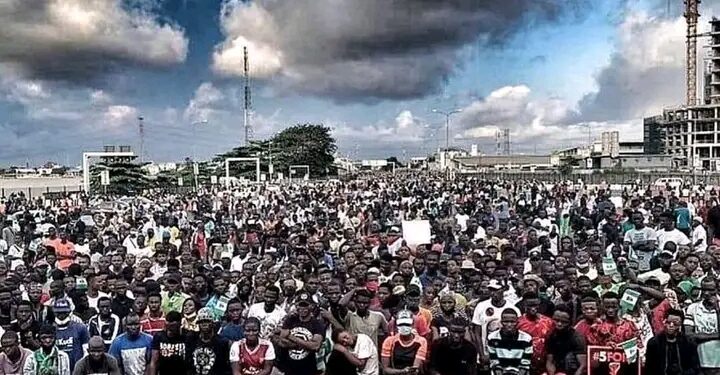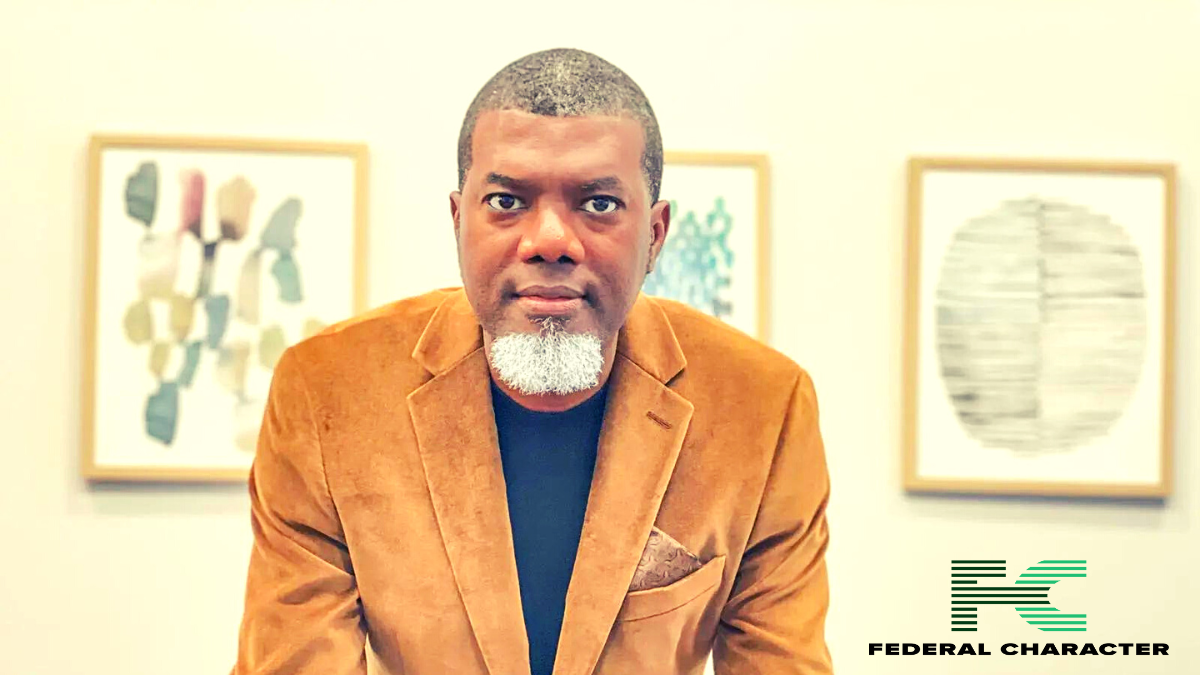It’s been four years since the #EndSARS protests, a movement that awakened Nigeria’s youth to the realities of police brutality and government indifference. On Sunday, October 20, 2024, demonstrators gathered at the infamous Lekki Toll Gate, not to riot or wreak havoc, but to remember those who lost their lives in the October 2020 protests. Yet, it seems the Lagos State Police Command is still uncomfortable with people exercising their constitutional rights.
The youths, armed with nothing more than placards and banners, assembled at the toll gate around 8:30 am. They weren’t asking for much, just justice. They demanded the full implementation of the reports submitted by the judicial panels of inquiry set up after the bloodshed of 2020. You’d think that after four years, the government would have made significant strides, but here we are, still waiting for answers, still waiting for justice.
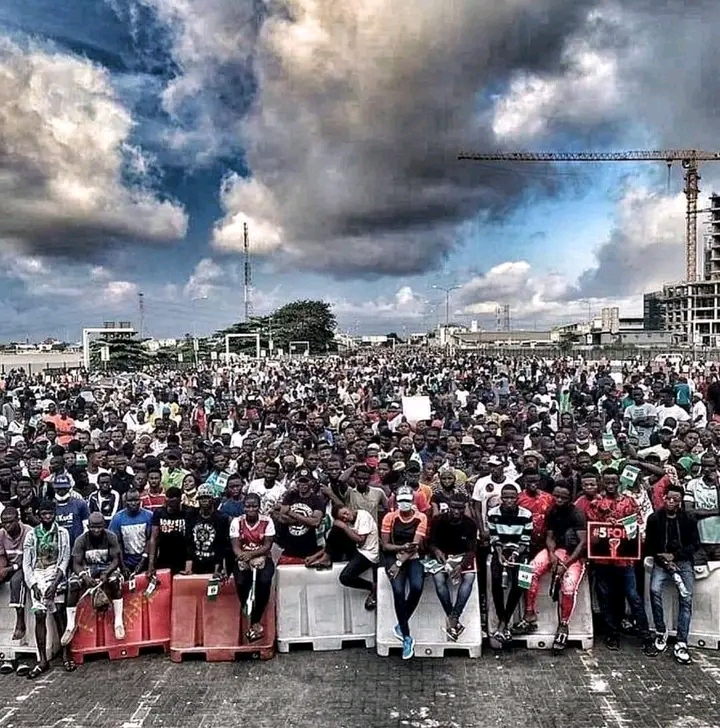
Police “Order”
But in true Nigerian fashion, the police couldn’t just let the memorial take place peacefully. Reports quickly emerged that officers had swooped in to disperse the crowd and even went as far as arresting some of the demonstrators. Human rights lawyer Inibehe Effiong wasted no time in calling out the Lagos State Police for arresting 18 activists, including Comrade Taiwo Soweto.
Effiong described the protest as peaceful, but of course, that didn’t stop the police from brutalizing the participants and hauling them off to the State Criminal Investigation Department (CID) in Yaba. Apparently, the constitution doesn’t mean much when it comes to peaceful protests in Nigeria. The police, as usual, acted like they were above the law.
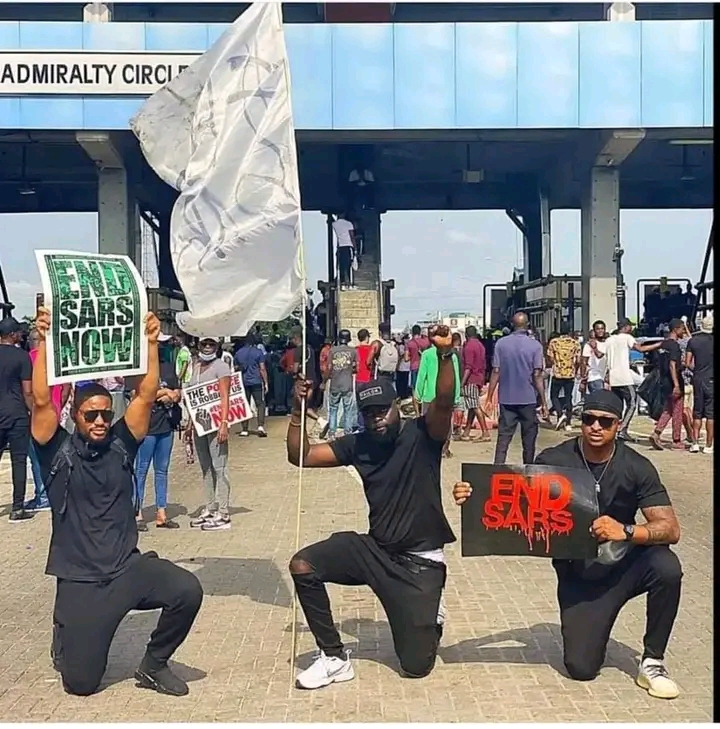
Four Years On, Same Old Brutality
Effiong’s outrage wasn’t unfounded. “Comrade Hassan Taiwo Soweto and 17 other activists have been arrested at the Lekki Toll Gate,” he tweeted. “They were brutalized and are currently being detained in State CID Panti by the police for commemorating the memorial of the Lekki Toll Gate Massacre. They were entirely peaceful and did not disrupt public peace in any way.”
Unconstitutional? Absolutely. Unacceptable? Without question. Yet here we are, four years later, with the same police force accused of brutality, still brutalizing citizens.
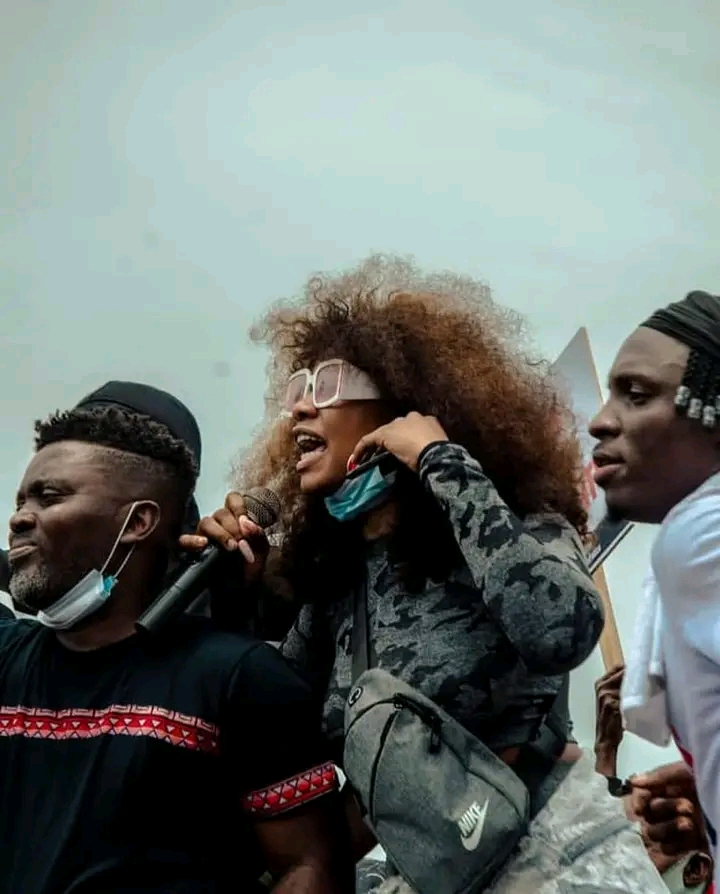
The Illegal Gathering Excuse
And what’s the police’s defense? Oh, the protest was illegal. Yes, according to the Lagos State Police Command, the demonstrators didn’t seek clearance or permission before embarking on their peaceful commemoration. Commissioner of Police, Olanrewaju Ishola, had the audacity to appear on Channels Television, stating that the protest was illegal because no one wrote to him.
“Constitutionally, they should write to me as the Commissioner of Police of their intention to do so. They did not write to us, and as such, any such gathering is illegal,” Ishola said, with all the confidence of someone who believes they are above the law.
Apparently, the right to protest in Nigeria comes with a prerequisite: grovel before the police first, or face arrest. The irony is palpable. The police claim to protect the constitutional rights of citizens, but only when it suits them. Anything else is “illegal,” and they won’t hesitate to flex their power to silence dissent.
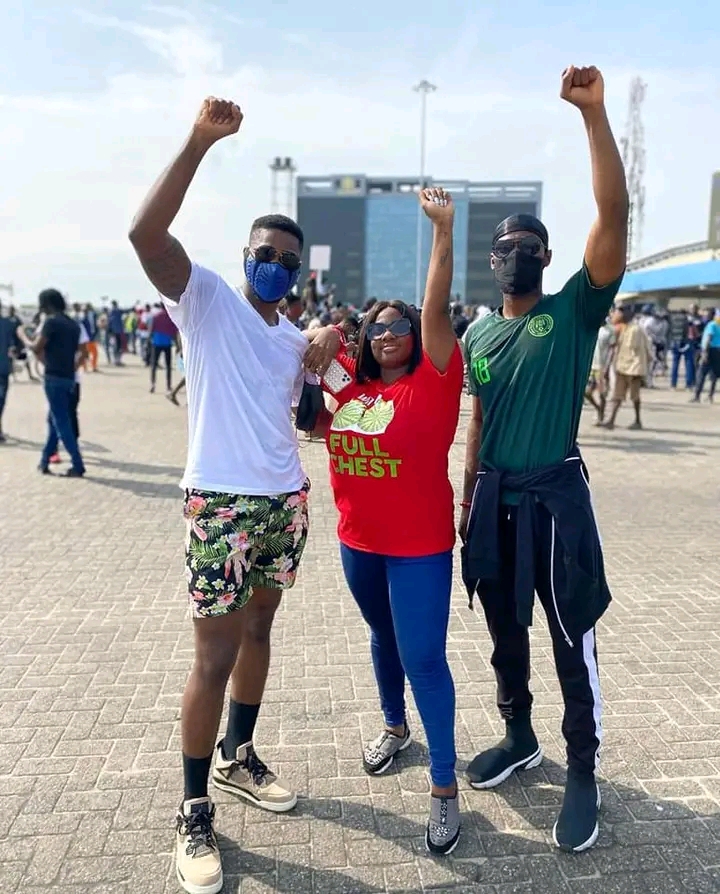
The Lekki Toll Gate: A Grim Reminder
Let’s not forget why the Lekki Toll Gate is such a significant location. It was here that peaceful protesters were allegedly gunned down by soldiers on the night of October 20, 2020. While the government and military have tried to rewrite history, the bloodstains on that pavement are etched in the memory of every Nigerian who dared to hope for change.
The #EndSARS movement wasn’t just about ending police brutality—it was about holding those in power accountable. Four years later, it’s clear that the Nigerian government has no interest in doing either. The Lekki Toll Gate stands as a reminder of the government’s unwillingness to listen to its people.
Broken Promises, Still No Justice
The judicial panels of inquiry set up after the protests were meant to bring justice to the victims. But what has come of those reports? Have the recommendations been implemented? Not in any meaningful way. Instead, the government and police continue to act as though #EndSARS never happened.
It’s no surprise, then, that the youth feel the need to keep protesting. When justice is delayed—and in this case, seemingly denied—people take to the streets. And yet, even when they do so peacefully, they are met with violence and repression. The police claim to protect law and order, but their actions often suggest otherwise.
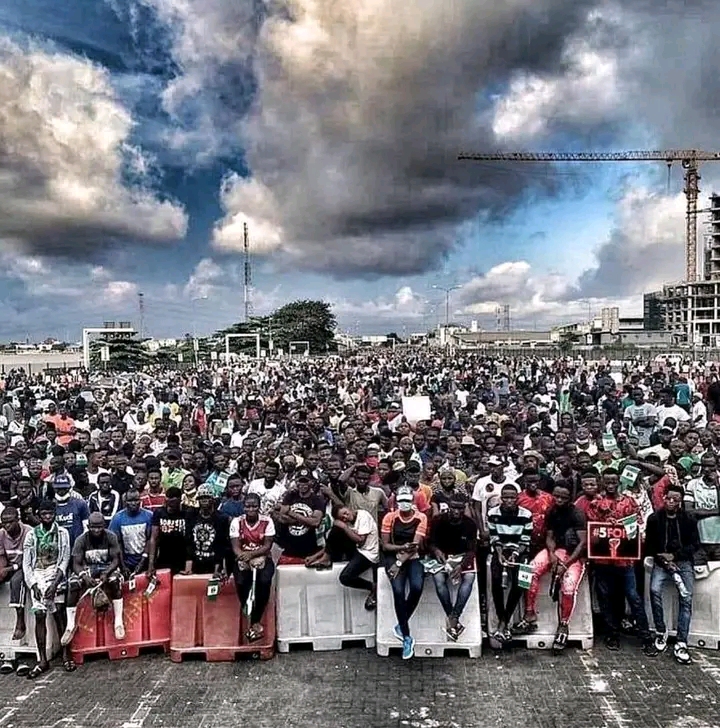
Tribute to #EndSARS Protesters
The #EndSARS protest was more than just a movement, it was a wake-up call for Nigerians, especially the youth, who had long been sidelined and ignored. It was a rare moment of unity, where people from all walks of life came together to demand an end to police brutality and corruption. For a brief moment, it felt like change was possible. But the government’s response—brutal repression, denials, and broken promises, has only deepened the disillusionment.
As we mark the fourth anniversary of the #EndSARS protests, we remember the fallen, the ones whose lives were cut short in the fight for justice. We honour their memory by continuing to demand accountability, even when the odds seem stacked against us.
In a nation where peaceful protest is met with brutality, it’s clear that Nigeria still has a long way to go. The police may have dispersed the crowd at Lekki this Sunday, but the memory of the #EndSARS protest, and the lives lost, cannot be erased. It’s only a matter of time before the calls for justice grow louder.
After all, history has shown us that when people are pushed to the edge, they don’t stay silent for long. The Nigerian government would do well to remember that.

